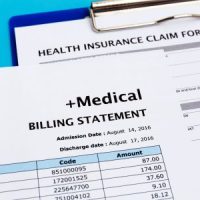Tracking Medical Expenses After an Accident

Being injured in an accident can be overwhelming for victims, who may not only be experiencing a lot of pain, but may also be struggling with potential disability and the stress that comes with mounting medical debt and household expenses. Fortunately, it is possible for accident victims to recover compensation for these kinds of accident-related losses. Doing so, however, will require convincing evidence of those losses, including all of a victim’s accident-related medical expenses. Read on to learn more about tracking these expenses after an accident.
What Documents to Keep After Your Accident
Before an accident victim will be able to reach a settlement with an insurer, or receive a damages award in court, he or she will need to provide proof of the losses sustained. This in turn, will require compiling certain types of medical documents, including any records related to:
- Transportation via ambulance;
- Emergency room visits;
- Diagnostic tests, scans, and lab tests;
- Surgeries;
- Appointments with treating physicians;
- Appointments with specialists;
- Prescriptions and over-the-counter medications; and
- Medical equipment.
Accident victims will also need to retain copies of any documentation that lists expenses related to any ongoing care that takes place after their initial treatment, such as:
- Physical and occupational therapy appointments;
- Psychological treatment sessions;
- Home health care;
- Modifications to a victim’s home or vehicle;
- The cost of accommodation and transportation for treatment-related travel; and
- Household assistance, such as childcare.
Keeping track of these expenses by saving all necessary documentation is a good starting point for figuring out how much a person could recover if his or her claim is successful.
Keeping Documents Organized
There are a variety of ways to track one’s medical expenses after an accident. Some of the most popular systems, however, involve:
- Using a physical filing system to organize receipts and invoices by date and type of expense in various designated folders;
- Taking photographs of the paperwork and then sharing those documents to a computer or storing them in digital folders;
- Using a smartphone application that is specifically designed to keep track of and differentiate between expenses; and
- Maintaining a journal, where the injured party keeps a list of expenses, what they were for, and when they were incurred.
Which of these methods works best for an injured party will depend on his or her specific circumstances. For help tracking your own medical expenses after an accident, reach out to our legal team today.
Contact a Florida Personal Injury Lawyer
It can be difficult for accident victims to stay on top of everything when pursuing compensation from an at-fault party. Besides seeking treatment and follow-up care, accident victims must also worry about paying household expenses and performing day-to-day duties, sometimes while unable to work or experiencing disability. At Boone & Davis, our experienced Fort Lauderdale personal injury attorneys can help keep you on track in the aftermath of your accident. Call us at 954-566-9919 or send us an online message to get started on your case.
Sources:
forbes.com/advisor/car-insurance/what-to-do-after-accident/
floridabar.org/rules/florida-standard-jury-instructions/civil-jury-instructions/civil-instructions/#500
